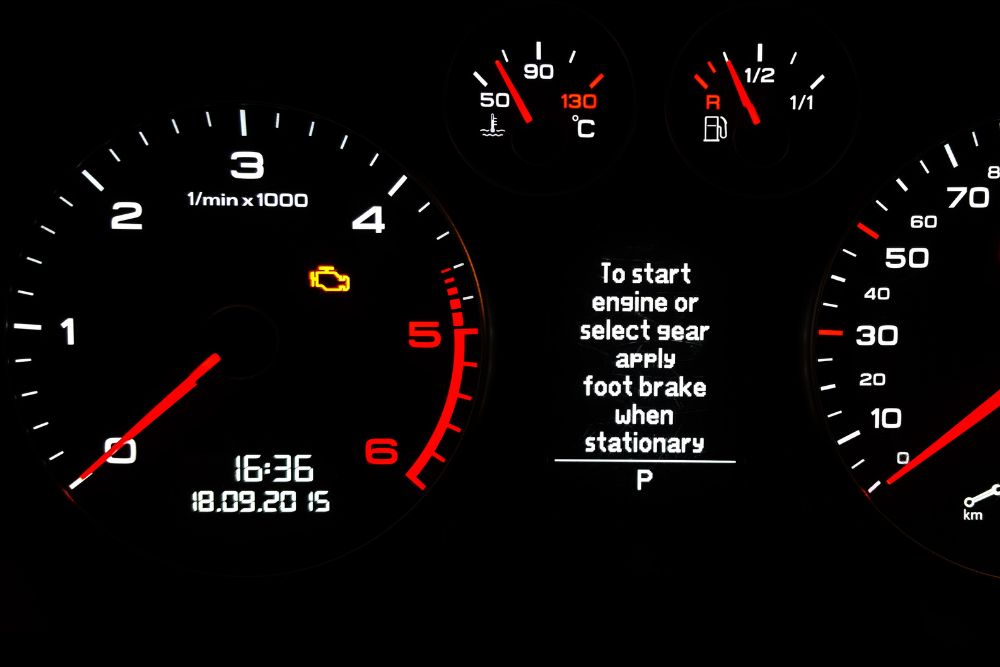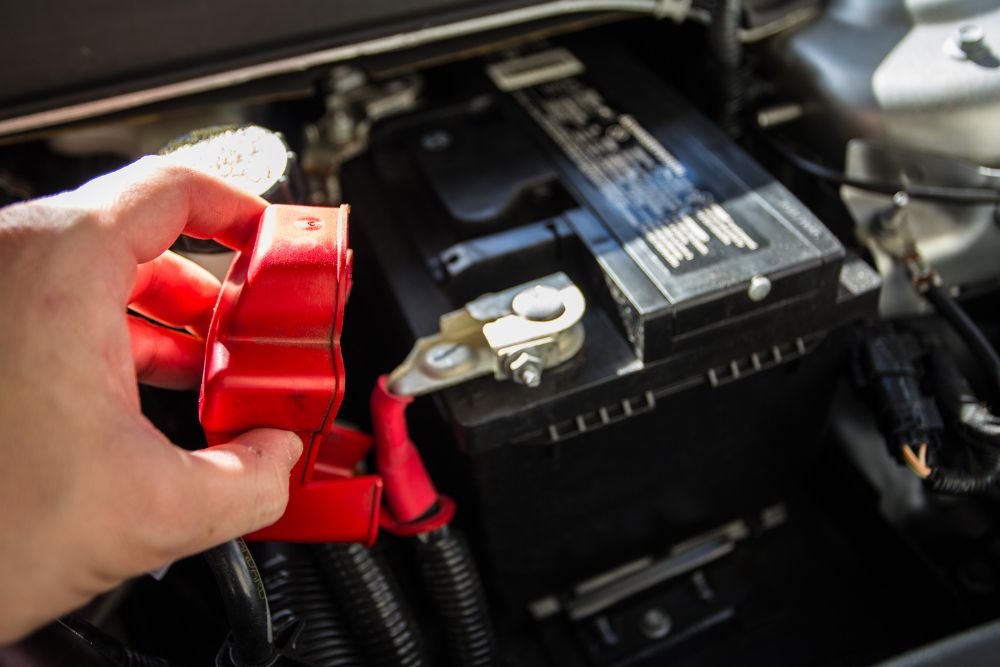You don’t need us here at Stringer Auto Repair to tell you that failing brakes are dangerous brakes. Brake failure doesn’t necessarily mean that you have to lose the use of your brakes. Your brakes can start to fail as they go bad, and you will notice one or more of the seven symptoms of brake failure below. It’s important to have your brakes inspected right away to avoid losing them completely.
1. ABS/Brake Light
There are two brake system lights on your dashboard: ABS and Brake. These lights come on when you fire up your automobile but turn off within seconds. The brake light comes on when you set the parking brake. Other than that, you shouldn’t see these lights. If you do, you have brake problems.
2. Brake Fluid Leak
A brake fluid leak is the start of brake failure. You cannot stop your automobile if you don’t have brake fluid. Brake fluid leaks behind the wheels and the color of the fluid is light brown to dark brown. It’s important to have brake fluid leaks fixed immediately.
3. Noisy Brakes
Noisy brakes indicate that your brakes are on the road to failure. Squealing and screeching can indicate problems with the brake pads, broken anti-rattle clips, or overheating brakes. Grinding or scraping indicates that you have no brake pad surface left and it will be difficult to stop your automobile.
4. Overheating Brakes
Burning smells coming from behind the wheels can indicate that your brakes are overheating. You will also hear constant squealing as discussed above. Overheating brakes will fail, so stop driving your automobile at the first detection of burning smells.
5. Pulling to the Side
If you end up with a rock stuck in a caliper or a warped rotor, your vehicle may pull to the side every time you apply the brakes. Your vehicle should not do this. You should continue to head straight while your vehicle slows down and stops.
6. Spongy Brake Pedal
Another sign of brake failure is a spongy brake pedal. The pedal should give you resistance and stop depressing once it reaches 1 1/2 inches from the floorboard. If the pedal sinks all the way down to the floor or feels soft and spongy, you need a brake inspection.
7. Vibration/Shaking
Finally, any vibration or shaking when you apply the brakes indicates a problem with the brake system or your wheel balance. The former can make it impossible to stop your car, while the latter makes it difficult to control your automobile.
Stringer Auto Repair in Johnstown, OH, is here to help you with all of your automotive service and repair needs. Call us today for a brake inspection.



